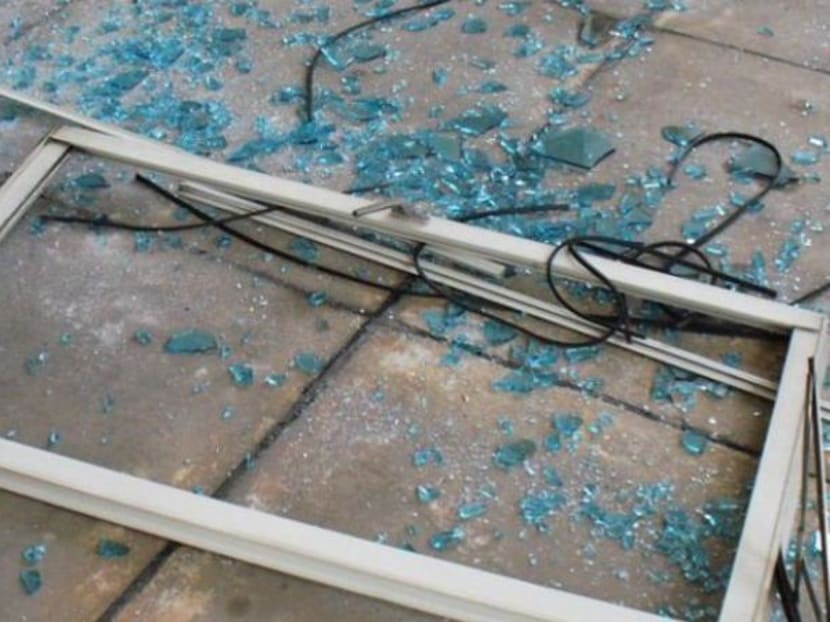Alert on falling windows as number of cases rises
SINGAPORE — In the first five months of this year, 28 windows fell from high-rise public- and private-housing blocks, and this is higher than the past five years’ average of 24 cases recorded in the same months. There were no injuries linked to the cases this year.

Twenty-eight cases of fallen windows were reported in the first five months of the year, higher than the average seen for the past five years. Photo: Building and Construction Authority
SINGAPORE — In the first five months of this year, 28 windows fell from high-rise public- and private-housing blocks, and this is higher than the past five years’ average of 24 cases recorded in the same months. There were no injuries linked to the cases this year.
In a joint press release on Tuesday (June 6), the Building and Construction Authority (BCA) and the Housing and Development Board (HDB) said that 13 casement windows, 14 sliding windows and one unspecified window model crashed from January to May.
Mr Er Lim Beng Kwee, director of BCA’s special functions group, said: “We would like to remind all homeowners and tenants to regularly maintain their windows at least once every six months. This applies to all window types, including casement, sliding or louvred windows, and even if their windows were installed or have been retrofitted with stainless steel rivets.”
For more than a decade, the authorities have wrestled with the problem of falling windows, which continue to pose a safety hazard.
It came to a head in 2004, when laws were passed to regulate safety standards, requiring homeowners to undertake retrofitting work to replace the aluminium rivets of casement windows with stainless steel ones, among other regulations. Windows in landed properties and the ground floor of buildings are exempted.
In recent years, public education efforts have been conducted, such as increasing the number of roving exhibitions on window safety and handing out brochures on window maintenance.
Before the legislation kicked in, from 2001 to 2003, there were 190 incidents of falling windows, with 166 of the cases coming from public housing flats.
As in the past, the BCA and HDB said on Tuesday that most of the casement windows in the recent tally fell because their aluminium rivets had corroded, resulting in the rivets unable to hold the window panels firmly in place.
Most of the sliding windows fell because they could not move smoothly along the tracks due to a lack of maintenance. They also did not have proper safety stoppers and angle strips to ensure that the panels stayed within the tracks. These incidents could have been prevented, the authorities reiterated, if the windows were maintained and parts were replaced.
Since 2006, 307 people have been fined and 81 prosecuted for fallen windows.






